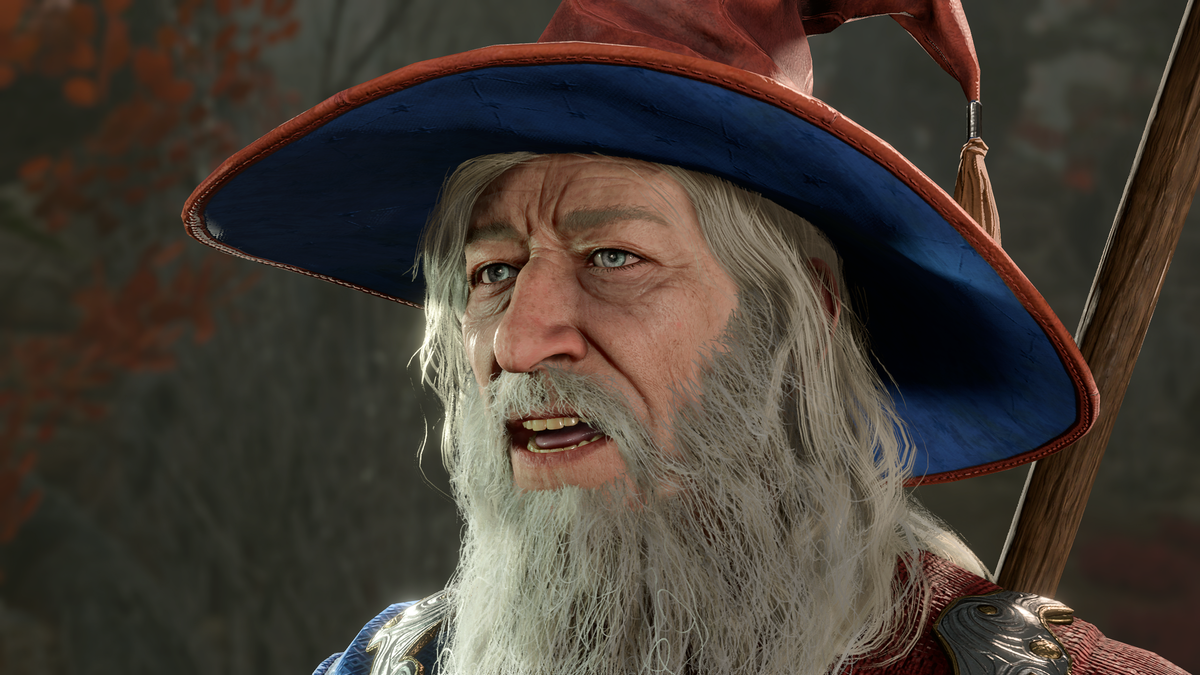If you’re anything like me, you greeted the news of Baldur’s Gate 3’s expanded evil endings in the mammoth Patch 7 with a “Oh, that sounds interesting, but there’s no way I could stomach actually unlocking them.” Luckily for us soft-hearted roleplayers, those bad boys are on YouTube in force, and they’re well-worth seeing—even if it’s just to give some added weight to your “canon” happy ending. Spoilers ahead for Patch 7’s new endings.
There’s the basic binary choice at the end of the game where you either destroy or enslave mind flayer superbrain The Absolute, with the new ending variations all flowing from the latter choice. There are a ton of different ways it can play out, with your character achieving the ending as a mind flayer or not, and with or without the support of the Emperor. If the Emperor’s still around, you have the choice to either play second fiddle to him or betray him at the last second, usurping control as in the other evil endings.
One thing that surprised me was the possibility of turning into an illithid against your will after taking control of the Absolute: You have to pass a Constitution check based on how many mind flayer tadpoles you ate throughout the game, with failure causing you to graphically undergo ceremorphosis and get a unique ending where the illithid “Grand Design” begins.
Pass that check, though, and you get a fun little option to “exercise your will,” directing the newly-enslaved people of Baldur’s Gate toward a selection of evil guy activities, with a unique cutscene for each one. The evil scenes include:
- Sending your cultists out in conquest.
- Building a giant statue of your avatar as “the hero of the world.”
- Killing everyone in and around Baldur’s Gate.
- Having everyone go berserk on each other, Kingsman-style.
- A unique option for each origin character (Wyll, Gale, etc.)
The last option is particularly sick, and doesn’t seem to have been available during Patch 7’s extensive playtest. Each origin ending feels like a believable, satisfying conclusion to the respective character’s arc—no mean feat given BG3’s extensive cast. Karlach, now preserved by the Absolute’s magic, rips out her failing machine heart before sicking devils on the town. Lae’zel begins her war on Vlaakith bolstered by an elder brain, while Astarion proclaims himself a “sun god” beloved by all.
The most extensive unique ending belongs to the customizable Dark Urge. If you’re a good little murder lord blessed by Bhaal, taking control of the Absolute leads to a bespoke cutscene where the Durge uses their power to kill everyone in the city, beginning with their love interest. They then get a vision of the lifeless world they’ll eventually create, with themself as the last living thing in a lake of corpses under a darkened sun.
![[SPOILER] New Dark Urge Evil Ending. Patch 7. Baldur's Gate 3 - YouTube](https://img.youtube.com/vi/-r9TfQyTO-0/maxresdefault.jpg)
It feels like a fitting send-off for Baldur’s Gate 3, even if Larian does have a few smaller updates still planned. The game’s less popular evil endings have gotten high quality cutscenes that expertly detangle the sprawl of different options and variations possible, and I have to imagine that these new endings at least rival the happy ending epilogue party in terms of effort and cost. The fact that Larian balled out so much for endings only a minority of players have pursued is just another impressive example of the studio’s craft, capping off an entire game of “I can’t believe there’s a special cutscene for this insane edge-case choice I made.”
Even if you never pursue these new endings in your own save, they lend some real depth and stakes to the story. The feel good party at the end of a good-guy playthrough feels genuinely hard-won when there are such shocking and gruesome alternatives to contrast with, and the fact that other people’s BG3 experiences can look completely different to my own lends a real richness to this game that already has so much else going for it.

